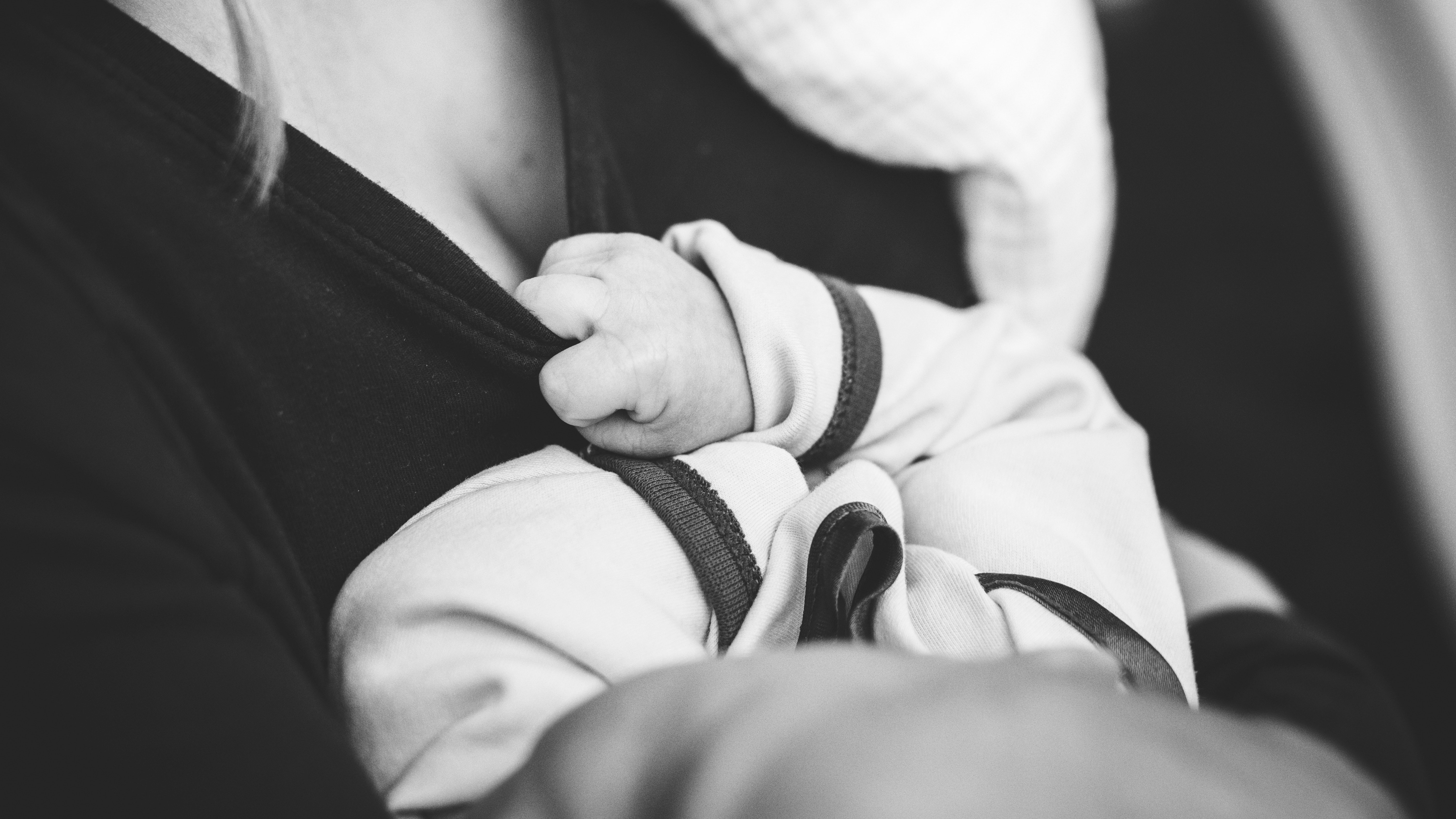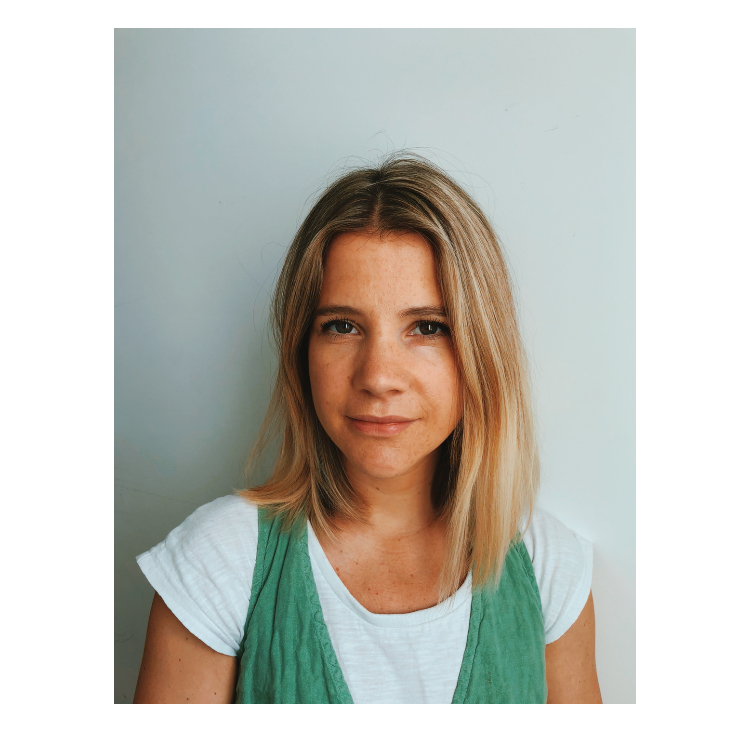Postnatal Depression affects 1 In 7 mothers and it's time we spoke about it
The condition affects one in seven mothers, yet postnatal depression has remained a largely taboo subject in mainstream media – until now. Charlotte Philby investigates


The condition affects one in seven mothers, yet postnatal depression has remained a largely taboo subject in mainstream media – until now. Charlotte Philby investigates
There is a video of one of my birthday parties when I was small. In it, amidst the balloons and giddy toddlers one of my friend’s mothers sits crossed-legged on the floor, facing the wall, head down. As a teen, I remember pointing it out to my mum when watching it back and her replying, ‘She wasn’t well when the children were young’. That image embodied postnatal depression for me: a dark cloud of debilitating despair, obvious even to a self-involved teenager.
As the years passed, however, and I had my own children – now nearly seven, four and two – I’ve come to see postnatal depression (PND) in a new light; something that exists on a greyscale, fluctuating between a quiet burden and overwhelming despair.
According to a recent study, one in seven mothers suffer postnatal depression, with up to 20 per cent considering self-harm. The University of Pittsburgh, which screened 10,000 women four to six weeks after giving birth, also found that around one in five of those who screened positive for postnatal depression had bipolar disorder, too.
This condition is as indiscriminate as it is universal. A staggering one in five women will suffer some form of mental-health problem around pregnancy or in the year after giving birth, according to mental-health charity Mind. This ranges from perinatal obsessive compulsive disorder to post-traumatic stress disorder. The most common symptoms of postnatal depression include persistent feelings of sadness, a loss of interest in the wider world, and not bonding with your baby.
Unlike ‘baby blues’, which is defined as a period of feeling down in the first week or two of giving birth, postnatal depression is officially defined as an episode of depression within the first year of motherhood. For some, this can become acute. According to the Birth Trauma Association, some 20,000 women a year develop what’s known as birth-related post traumatic stress disorder (PTSD) in the UK alone. This is most common if a woman has experienced the threat of death or serious injury during or immediately after birth. Symptoms include fear and anxiety, flashbacks and intrusive thoughts.
However, Dr Emma Svanberg, a clinical psychologist specialising in pregnancy and birth, says diagnostic labelling isn’t helpful. ‘Postnatal depression can manifest itself very differently. Some people may have experienced depression before in their life. For others, the depression is directly related to becoming a parent.’
Marie Claire Newsletter
Celebrity news, beauty, fashion advice, and fascinating features, delivered straight to your inbox!
Jessica Friedmann, author of Things That Helped, a book she published after her experience with postnatal depression following the birth of her son, now five, says, ‘It really cuts across all demographics. Cross-cultural studies tend to report similar results in all cultures, even those that don’t see depression as a medical issue. There is something innate to the process of early motherhood that triggers PND. Social and cultural factors then further complicate each woman’s experience.’
Friedmann says one thing that recurs when speaking to women is a sense of losing their identity. ‘Before [the birth] they were artists, engineers, lawyers… now they are mothers, and their life is expected to revolve around the baby in a way that men are exempt from. This inequality is at the root of a lot of suffering. It’s hard to see yourself as truly equal when your co-parent has so much more freedom than you, and isn’t reduced to being a “new daddy”.’
However, according to Rebecca Schiller, CEO of Birthrights – the UK organisation dedicated to improving pregnancy and childbirth experiences – depression often starts before the birth. ‘Antenatal depression affects 10 per cent of pregnant women, and there’s a strong association between depression during and after pregnancy. About a third of women with PND had symptoms in their pregnancy,’ she says.
Steph Douglas, founder of Don’t Buy Her Flowers, a business she created in response to her post-partum period, believes there’s a spectrum, from ‘baby blues’ to PND. ‘A lot of us sit somewhere in the middle,’ she says. After the birth of her children, Buster and Mae, Douglas says there was no definitive reason for her depression, she just felt lost. ‘The things that had given me identity – my job, body, friends, marriage – were not as they were and it felt like they never could be. Some women feel they’ve found their role in life [after having a baby]; I’m not alone in saying I didn’t.’
The most severe form of postnatal depression, post-partum psychosis – which affects one in 500 new mothers and has been linked to suicide and infanticide – could also be genetic, according to medical charity, Wellcome Trust. There is also a link between a particularly traumatic birth and PTSD.
Anniki Sommerville was 14 when her stepmother committed suicide while suffering severe postnatal depression. She threw herself off a building with Sommerville’s sister in her arms. Both died immediately. The trauma shaped Sommerville’s life, but it has also shown her how easy it is to feel out of control. When she had her daughter, Rae, three years ago, her PND wasn’t diagnosed. ‘I felt bewildered. I remember staring out into the garden and not recognising it. I felt fearful and seemed incapable of the simplest tasks. I was obsessed that something bad would happen to Rae and that I would be responsible.’
The feelings of anxiety, though, had started long before. ‘My pregnancy was straightforward, but I was nervous after suffering two miscarriages. I thought I’d feel better once the baby was born, but that was when it really kicked off.’
It’s an experience I can relate to in my own life: something shifted in me after my second baby was born. I became anxious, often feeling overwhelmed. Perhaps that is a fundamental part of having children – the unrelenting sense of responsibility along with love. For me, the initial loss of self alongside the constant challenges that shift and slide with each child have been characterised by a sense of purpose, but also, occasionally, a sense of despair. Having children heightens everything: there are very-highs and very-lows but I can’t be sure this equates to depression.
Over the years, the conversation around new parenthood has shifted. On one hand, the pressure to be seen to be coping is greater than ever, as edited versions of other people’s lives play out on social media. Also embedded in the modern psyche is the idea that we should be able to ‘deal with’ issues and strategise our way out of difficulties. Yet the new school of mothering now visible on blogs focuses on sisterhood, honesty and imperfect parenting; an understanding that many of us struggle.
This is brought to life in Emily Beecher’s musical The Good Enough Mums Club, inspired by her own life. Beecher suffered post-partum psychosis after the long, but manageable birth of her daughter. So her horrifying descent was all the more unexpected. ‘I have a very specific memory, two months in, of hearing my baby crying. Yet when I went upstairs, she was fast asleep.’ After that, the auditory hallucinations got darker.
‘I felt I was contaminating my daughter; that having such a shit mother was going to ruin her life. I fantasised about how much better it would be for her if I left.’ After ten months, Beecher was hospitalised. ‘My marriage ended within a year; that post-partum period changed us. I wondered how no one saw how ill I was, but I know now that I’m great at getting stuff done while feeling like the world is collapsing around me.’
Friedmann explains that while depression cuts across race, sex, and economic wealth, it still leads to feelings of isolation. ‘It can make saying, “I need help” feel impossible because we feel too ashamed and undeserving.’ Friedmann advocates talking to a medical professional and visiting nct.org.uk or pandasfoundation.org.uk if you feel you may be suffering from the condition.
For Sommerville, the recovery process was kick-started when her neighbour visited. ‘I confessed that I felt incapable of being a good parent,’ she says. Offloading helped and, over time, her neighbour’s reassurances gave Sommerville the confidence to believe in herself. ‘She was really supportive and I felt myself coming out the other side.’
In Beecher’s case, piecing her life back together has been ongoing. Alongside taking antidepressants and antipsychotic medication, Beecher began talk therapy and writing about her experiences. ‘I wrote my way out of the darkness and rebuilt my life into something happy, positive and, most importantly, full of love.’
Social-media campaigns, including #PNDHour and #AskHer, have created an open discourse around the struggles parents face – that’s a step forward in helping people cope with this common, but often misunderstood condition.
Parents’ charity NCT is calling for an improvement to the six-week postnatal check-up to reduce the number of mothers who don’t get diagnosed and treated properly. They urging people to sign up to the #Hidden Half campaign to make sure all women get the help they need. The NCT's helpline offers practical and emotional support in all areas of pregnancy, birth and early parenthood: 0300 330 0700


